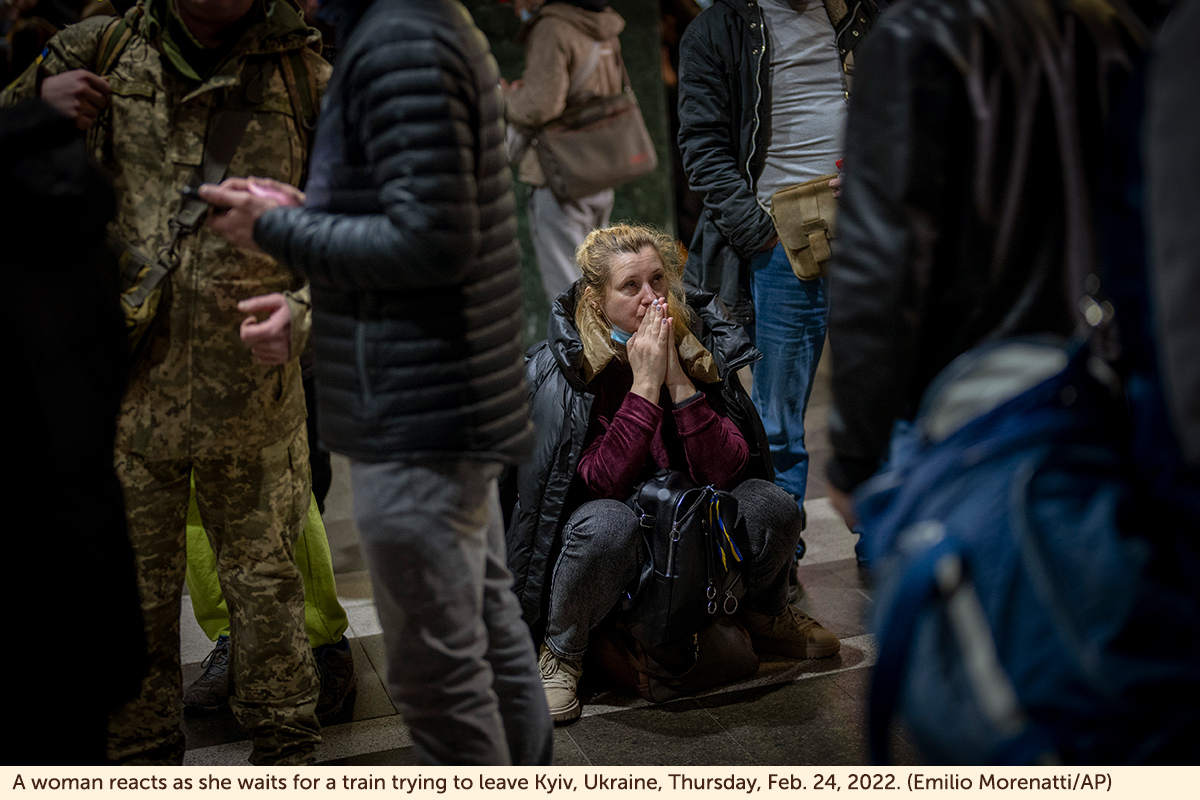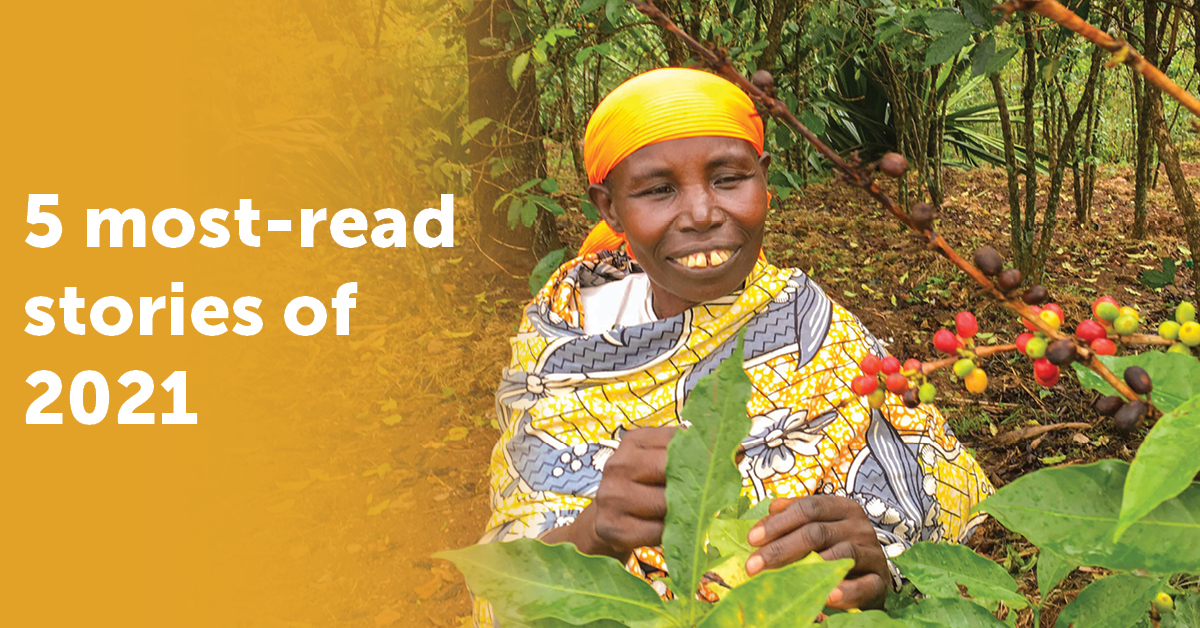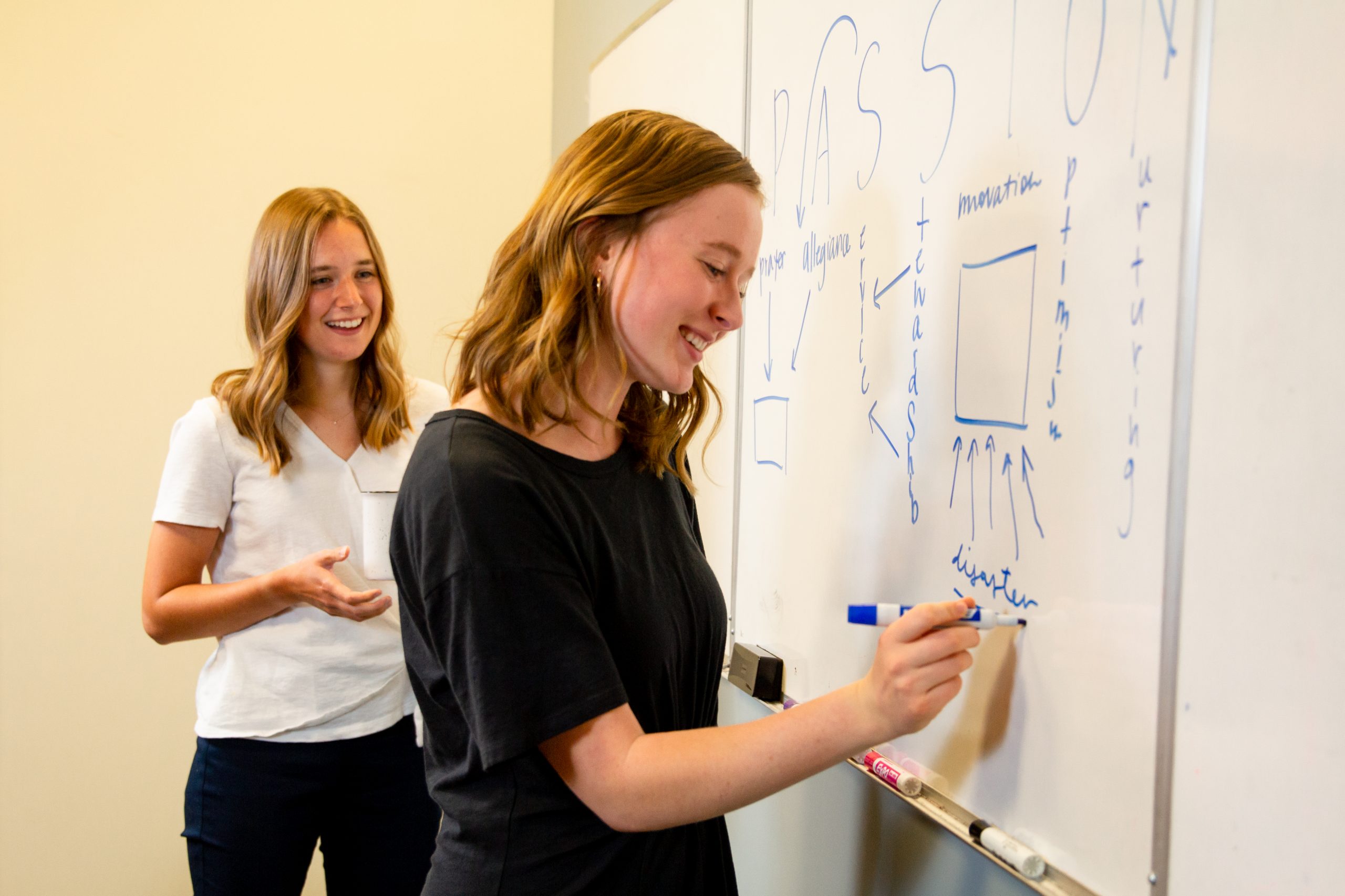The war in Ukraine rages on, with the fighting concentrated in southern, eastern, and northern regions. Thus far, Ukrainian forces have strongly resisted Russian attacks, and there is a great spirit of unity among Ukrainians. The United Nations estimates that over 2 million people have evacuated Ukraine as refugees, and millions more are displaced within Ukraine, having relocated to areas farther away from areas under attack. Continue Reading…
Update: We have a more recent update as of March 9 here.
Russia has launched a large-scale invasion on Ukraine, where HOPE International first began microfinance operations to serve Ukrainian entrepreneurs and families 25 years ago. Bombings and attacks have been reported across the entire country. We are in daily contact with HOPE Ukraine staff as we consider how we can best serve and respond.
We’re firm believers in the power of prayer, and as supporters of HOPE, the most impactful thing you can do right now is pray—please learn more below to know how you can join us in prayer. Continue Reading…
As the possibility of escalated violence between Ukraine and Russia increases, we hold the people of Ukraine in our hearts with grave concern and ask for God’s divine intervention.
And we invite you to join us because we believe in the power of prayer: that God moves when His children ask.
We have a deep love for the people of Ukraine. HOPE International distributed its first loans in Zaporozhye in 1997, and we know that this conflict has concerned HOPE Ukraine staff and clients since 2014, when Russia annexed Crimea and a conflict began in the east of the country.
We hurt with our brothers and sisters in Ukraine who have lived under the shadow of conflict for so long. Yet we trust God, remembering He is all-powerful and all-knowing.
Here are four ways you can pray for Ukraine: Continue Reading…
As a father of 10 children and an owner of two businesses in Strășeni, Moldova, it would be easy for Pavel Nichita to feel overextended. A chronic illness confines his wife to bed, and his youngest son lives with a life-altering disability, increasing the demands on Pavel’s time and energy. But to those who know him, Pavel exudes peace and joy. Indeed, he claims, “I am the happiest person alive.”
Yet, Pavel is also familiar with sorrow and struggle. But because of his close relationship with the Lord, he knows God’s mercy and love.
It is through truly knowing God alone that we can endure all hardships.”
Most Moldovan families are small (with a nationwide average household size of just 2.2, according to the Population Reference Bureau), and many Moldovan fathers work outside the country to support their families. In both respects, Pavel considers himself uniquely blessed.
It isn’t easy to provide for a large family, and small loans from Invest Credit, HOPE’s partner in Moldova, have eased the strain by allowing Pavel to make timely investments in both his farming and car repair businesses.
Pavel can only farm when the weather is warm, but with his first loan in 2010 he invested in greenhouse components to extend his growing season. Additional loans helped him repair an old combine for harvesting crops and build a garage in which to repair cars.
These opportunities, too, he sees as gifts from God. Pavel says that his relationship with Invest Credit has helped him learn more about God’s love and see that “He often helps us through other good people, no matter what circumstances we are in.”
Pavel’s circumstances became increasingly difficult during the pandemic. His car repair shop saw no customers. Because of lockdowns, he couldn’t fulfill his passion of traveling to nearby villages to share the Gospel. And many members of his family became ill.
Invest Credit granted Pavel a three-month stay on loan repayments, allowing him time to adjust to changing realities without the pressure of imminent payments.
With the extra time, Pavel was able to better manage his finances and maintain his strong credit history. Even when Pavel wasn’t actively making payments on his loan, his loan officer continued to visit and offer encouragement. Invest Credit staff prayed over Pavel and his family—and Pavel, in turn, prayed for Invest Credit and the expansion of their mission in Moldova.
Around the HOPE-network, incredible men and women are leveraging Christ-centered financial services to invest in their dreams for themselves and their communities. Watch Marcel and Jeanne’s story and see how a $48 loan launched a small business empire and created 41 jobs for their community in Rwanda.
Reflecting on the last year, we’re amazed at how God has continued to show up throughout the HOPE network. Despite a myriad of challenges worldwide—political unrest, natural disasters, and an ongoing pandemic—God’s compassionate love has been evident to us, our partners, and those that we serve. Continue Reading…
HOPE Intl
HOPE Intl
News Spiritual Integration Staff / Travelsby Ruthie Claydon, Experience Team Assistant (summer 2021 intern) During my internship with HOPE International, I experienced spiritual growth in completely new and unexpected ways. Throughout the summer, I felt fully welcomed and integrated into the vibrant staff culture. Overall, here are four of the biggest ways I was impacted by HOPE’s employee-directed spiritual practices. […]
Continue Reading...




















